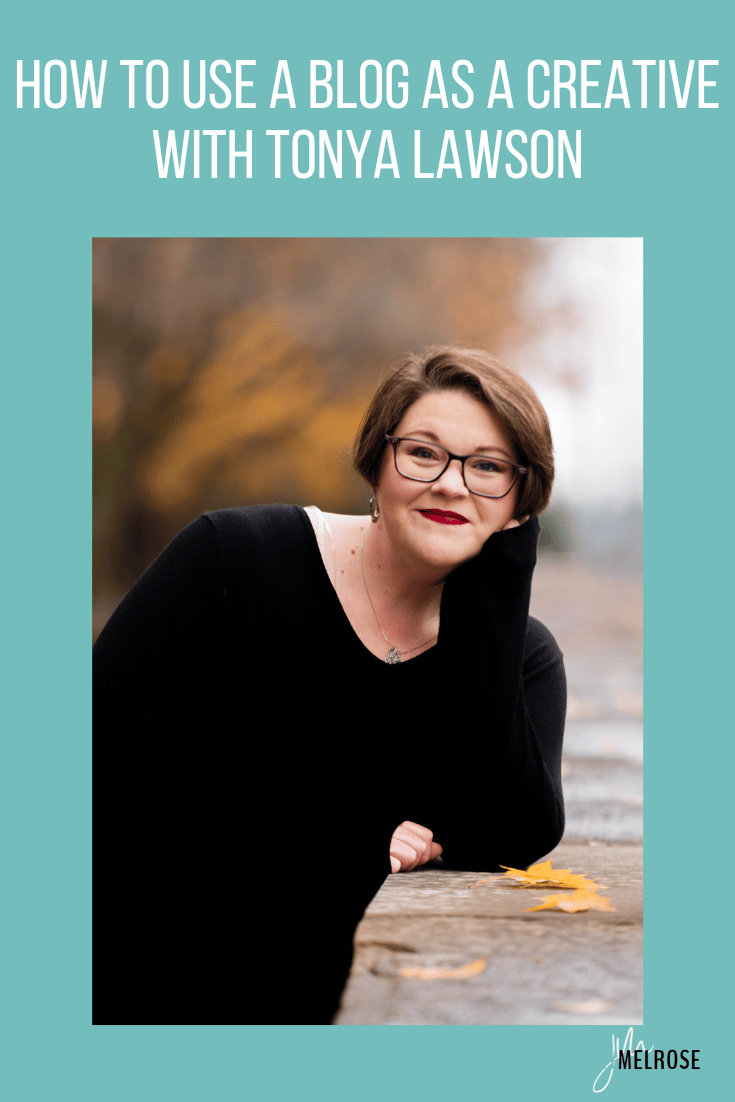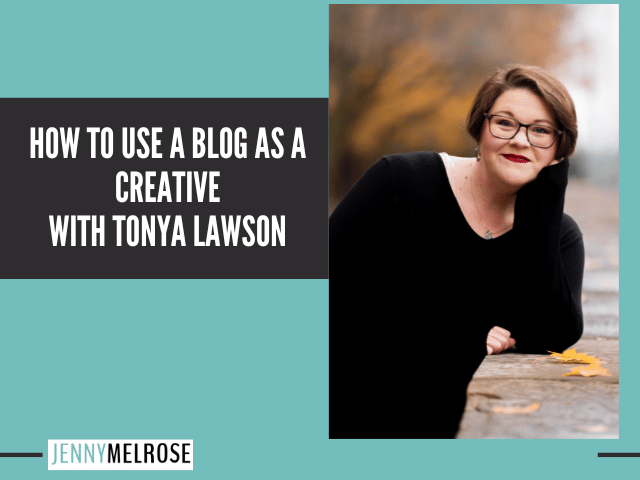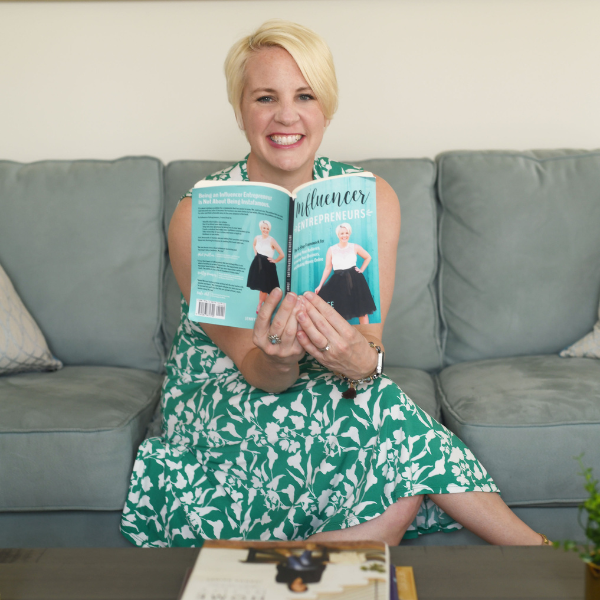Discover the art of how to use your blog as a creative in order to increase your visibility and build your business.
IE 389: How to Use a Blog as a Creative with Tonya Lawson

Tonya Lawson is a musician by trade and has her doctorate in Clarinet Performance.
After graduation, she found herself without a job in that profession and built a studio teaching private lessons. Even after being offered a position at the university level, she decided to continue building her studio but then the school systems changed protocol that threatened her business.
She took a course on SEO, tweaked her website, and began making money, even growing her music business during covid. She decided to ensure her future with other income streams, a coffee business, and a gardening blog.
She is an SEO specialist and helps her clients create multiple income streams to create passive income streams so that they don’t have a loss of income in the event one of those streams disappears. You can find her blog here.
Why should a creative start a blog?
A blog is the best way to get your website found on Google.
As creatives, we are all on social media but organic traffic is the “holy grail.” If you get sick, you cannot post consistently and people stop following you. If something happens and your Instagram gets hacked and you lose it, then you have lost your entire audience.
There are horror stories about YouTube shutting people down. By starting a blog, you can slowly build organic traffic because a blog and SEO are long-term drivers.
You will start getting people in from Google that you did not have to go find and engage with. You don’t have to go to Instagram, find people, follow them, DM them and constantly engage. They come to you naturally.
They are also your warmest leads because when they find you through Google, they are actively searching for an answer to a question or a solution to a problem and they find you. They are warm leads when they find you.
So many people have a website but don’t understand when no one finds them. Without a blog, we don’t have enough content for Google to fully understand them and be able to rank them.
You cannot build your business on rented property, which is exactly what social media is.
What is the difference between a blog vs. a website?
The website is the thing that houses your blog. The blog is a component of your website.
When you have your basic website set up, you have your “About You” page, your landing page, and sales pages. Another set of pages you would set up would be blog pages. Those are used to talk about topics that are relevant to your website.
You can take the blog posts about that topic and direct your readers to your product or service. For example, if you teach watercolor painting, you might have a bunch of mini-courses on how to watercolor paint.
People are actively looking for those topics. If you have a video that goes with them, you can create an entire blog post outlining everything you need and then embed the video.
You can add the courses that relate to your blog post and video. That is a strategic way to draw organic traffic to your website to generate conversions.
It is good to make your blog topics more specific by thinking about the questions people are asking so you can solve their problems. You need to get into their heads and think about the content that you can create for solutions to their problems.
You can then direct them to the other products and services that you offer – mini-courses, memberships, and other things they might find beneficial.
As long as it is a relevant topic to something you are already doing, it helps Google better understand who you are and what you do. It also helps build up your authority in the eyes of Google which will help you rank higher.
This last year, Google has put a huge emphasis on authority and is cracking down on people who have no idea what they are talking about. This has helped creatives because we have social proof of what we do. It helps to build the authority that is already in your “about’ section.
Google is looking for your EEAT = Expertise, Experience, Authority Trustworthiness.
What are the benefits of a blog?
A blog is a great driver for traffic to your website. Your blog paints a picture of what you do.
For example, Tonya is a musician, blogger, and passive income SEO specialist. She has a number of things on her website about how musicians can get found on Google. She has a number of things on SEO, including understanding SEO terminology, the basics of SEO, and other articles.
SEO stands for Search Engine Optimization and is basically, fancy letters for how to get your website found on Google.
The different things on her website paint a picture for Google of what her website is about and help better understand what it is about. Once it better understands, Google will move your website up in the rank results so people are better able to find it when they are searching.
What are the key elements of starting a blog as a creative?
You need to have a website on a self-hosted platform. While Wix or Squarespace are fine, Tonya is a big proponent of WordPress as the delivery platform and hosting.
WordPress has a paid monthly option but Tonya doesn’t recommend this. When you click the terms and services, you are giving ownership of your content to WordPress. As a creative, you want to own your own content.
Next, write down all of the questions anyone has ever asked you. Once you have those questions, type them into Google and review the questions “people also asked.” Write those down also. This is now a list of blog post topics you can start with.
You can also go to the website Answer the Public and type in your topic. That will generate more questions and you will have a year’s worth of blog post ideas.
From there, do your keyword research to see what the volume is so that you know the string of words you are using is what people are searching for.
You have all the words and pieces of information you need to go into the blog post so you can rank and see your competitors.
Moz has a great free keyword tool that is a Chrome extension that shows DA (domain authority). The rule of thumb is that you should be able to rank along with anyone who is 30 points higher than you. You can look at your DA score and add 30 and you should be able to rank at that level.
Both Tonya and Jenny suggest having a very niched website that people will come to see. Streamline what you will be talking about so that both people and Google know what to expect.
If you have recipes, healthy organic cleaning tips, and homeschooling advice, Google will not be able to accurately discern what your blog is about. Those are three different blogs.
Once you have a high domain authority, you can add other topics. When you are starting, you want to niche down. It is the fastest way to get Google to recognize it. Otherwise, it is confusing.
You can have more than one blog to show your different passions. Create a “future idea parking lot” to park your ideas until you are ready to start them.
5 days to ranking on Google Challenge
This is a 5-day challenge that tackles specific ways for you to rank on Google. There are homework assignments with actionable steps to take each day. You must do those to build on the next step.
After 5 days, you will do everything you need to do to show up on Google rankings.
ACTION ITEMS
- If you liked this episode of Influencer Entrepreneurs, please subscribe and leave a fabulous review!
- Ready to go deeper into your business? Join the Insiders Group at the special rate for podcast listeners.



Hi. I don’t see the link for the Google rank challenge.
Thank you for letting us know. It’s updated and linked above.